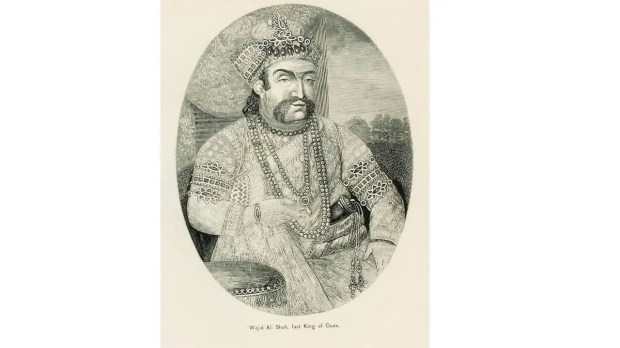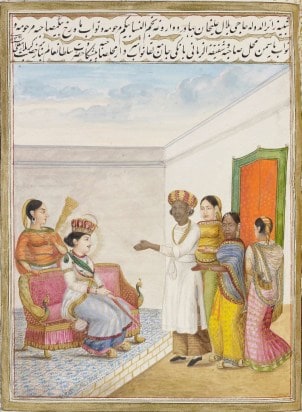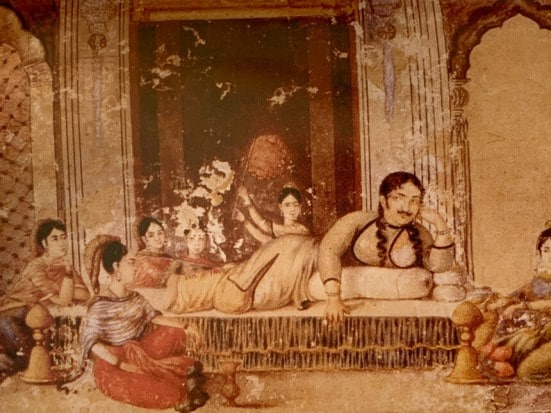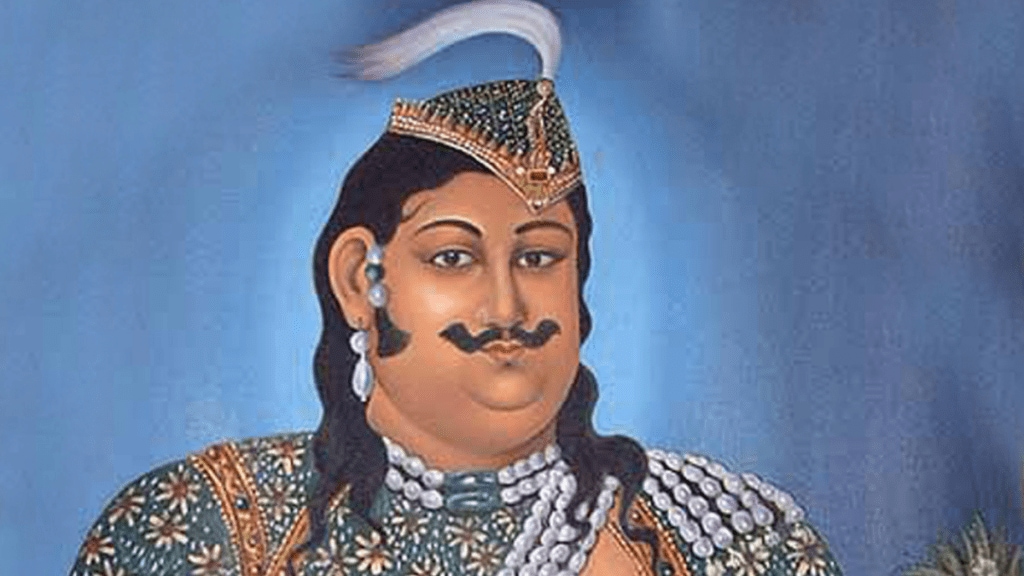Wajid Ali Shah, born Mirza Wajid Ali Shah on July 30, 1822, was the eleventh and final ruler of the historic kingdom of Awadh, located in present-day Uttar Pradesh, India. His reign, marked by a blend of cultural richness and political turmoil, left an indelible mark on the annals of Indian history.
Rise to Power

Ascending the throne on February 13, 1847, Wajid Ali Shah inherited a kingdom grappling with internal strife and external pressures from the British East India Company. Despite the challenges, he endeavoured to bring stability and prosperity to his realm.
A Renaissance of Arts

Beyond the corridors of power, Wajid Ali Shah was renowned for his passionate patronage of the arts. He was a polymath, excelling as a poet, playwright, musician, and dancer. His court became a vibrant hub of cultural exchange, attracting artists, musicians, and writers from far and wide. Wajid Ali Shah’s literary prowess shone through his prolific writings in Persian and Urdu, the cultural ethos of his era. His patronage of literary luminaries such as Mirza Ghalib further enriched the literary landscape of Awadh.
Musical Maestro

Wajid Ali Shah’s love for music knew no bounds. He was not only a proficient composer but also a connoisseur of Hindustani classical music. Under his auspices, the Lucknow Gharana of Kathak dance flourished, with the king himself composing ghazals and introducing new ragas that enriched the musical heritage of Awadh.
Theatrical Splendor

The king’s fascination with the performing arts extended to the theatre, where he pioneered the staging of grand spectacles known as Rahas. These elaborate productions blended poetry, music, and dance, captivating audiences and elevating Hindustani theatre to new heights.
The Fall of Awadh
Despite his efforts to modernize and strengthen his kingdom, Wajid Ali Shah’s reign was marred by political intrigue and the encroaching shadow of British colonialism. In 1856, the British East India Company annexed Awadh, leading to the king’s exile to Metiabruz near Kolkata, where he spent his remaining years in artistic pursuits.

Still, Wajid Ali Shah’s legacy endures as a testament to his vision and passion for the arts. His compositions continue to resonate, his cultural initiatives reverberate, and his spirit of creativity lives on in the hearts of those who cherish the cultural heritage of Awadh.







